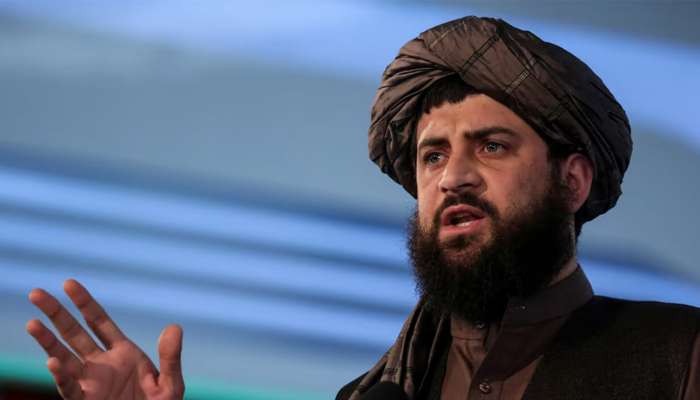
Doha : Mohammad Yaqoob Mujahid, the Minister of Defence of the Islamic Emirate of Afghanistan, stated that no one is allowed to violate Afghanistan's sovereignty or disturb the country's security.
Speaking at an online press conference from Doha, Mujahid emphasised that the Durand Line is hypothetical and it was not discussed in any part of the agreement, stressing that the issue is a matter between nations, Tolo News reported.
Established in the Hindu Kush in 1893, the Durand Line runs through the tribal lands between Afghanistan and Pakistan. In modern times, it has marked the border between Afghanistan and Pakistan.
It is a legacy of the 19th-century Great Game between the Russian and British empires in which Afghanistan was used as a buffer by the British against a feared Russian expansionism to its east.
The agreement demarcating what became known as the Durand Line was signed between the British civil servant Sir Henry Mortimer Durand and Amir Abdur Rahman, then the Afghan ruler, in 1893.
Abdur Rahman became king in 1880, two years after the end of the Second Afghan War in which the British took control of several areas that were part of the Afghan kingdom. His agreement with Durand demarcated the limits of his and British India's "spheres of influence" on the Afghan "frontier" with India.
The seven-clause agreement recognised a 2,670-km line, which stretches from the border with China to Afghanistan's border with Iran.
With independence in 1947, Pakistan inherited the Durand Line, and with it also the Pashtun rejection of the line, and Afghanistan's refusal to recognise it.
Referring to the upcoming meeting in Turkey, Mujahid said that discussions there would focus on the mechanisms of the current agreement.
In response to a journalist's question about guarantees ensuring Pakistan will not attack again or breach the agreement, he said: "Pakistan made its commitment in the presence of two other countries," Tolo News reported.
The Defence Minister added that if any attacks are carried out by Pakistan, they will take reciprocal actions, noting that Pakistan had previously violated Afghanistan's airspace. He said the Islamic Emirate of Afghanistan had given a decisive response to Pakistan's military regime, Tolo News reported.
Mujahid further clarified that under the agreement, trade between the two countries would return to normal, and stressed that Afghanistan, as an independent nation, maintains positive relations with all countries, including Pakistan, based on its national interests.
Regarding Afghan refugees, he said: "We discussed the situation of Afghan refugees and emphasised that they must be treated humanely."
Meanwhile, Deputy Prime Minister and Foreign Minister of Pakistan, Ishaq Dar, on Sunday lauded the peace agreement signed with Afghanistan, while reiterating Pakistan's accusations against Afghanistan for the recent attacks. Dar also called for efforts to prevent any further loss of lives.
In a post on X, he said, "Welcome the Agreement finalized late last night in Doha. It is the first step in the right direction. Deeply appreciate the constructive role played by brotherly Qatar and Turkiye. We look forward to the establishment of a concrete and verifiable monitoring mechanism, in the next meeting to be hosted by Turkiye, to address the menace of terrorism emanating from Afghan soil towards Pakistan. It is important to put all efforts in place to prevent any further loss of lives."
Earlier in the day, Pakistan Prime Minister Shehbaz Sharif, during a telephonic conversation with his Malaysian counterpart Anwar Ibrahim, blamed Afghanistan for the recent cross-border escalations. Sharif announced that Pakistan agreed to a ceasefire at the behest of Afghanistan and requested tangible actions against terrorists, Pakistan Prime Minister's Office said on Sunday.